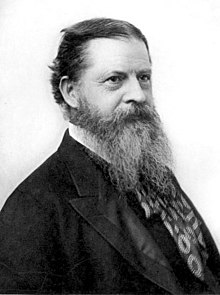Objective idealism
Objective idealism is a philosophical theory that affirms the ideal and spiritual nature of the world and conceives of the idea of which the world is made as the objective and rational form in reality rather than as subjective content of the mind or mental representation.Objective idealism starts with Plato’s theory of forms, which maintains that objectively existing but non-material "ideas" give form to reality, thus shaping its basic building blocks.as a form of metaphysical idealism that accepts Naïve realism (the view that empirical objects exist objectively) but rejects epiphenomenalist materialism (according to which the mind and spiritual values have emerged due to material causes), as opposed to subjective idealism, which denies that material objects exist independently of human perception and thus stands opposed to both realism and naturalism.[4] According to Schelling, the rational or spiritual elements of reality are supposed to give conceptual structure to reality and ultimately constitute reality, to the point that nature and mind, matter and concept, are essentially identical: their distinction is merely psychological and depends on our predisposition to distinguish the "outside us" (nature, world) from the "in us" (mind, spirit).[7] The philosopher Charles Sanders Peirce defined his own version of objective idealism as follows: The one intelligible theory of the universe is that of objective idealism, that matter is effete mind, inveterate habits becoming physical laws (Peirce, CP 6.25).
Charles Sanders Peircemodernidealismmaterialismsubjective idealismtheory of formsNaïve realismepiphenomenalist materialismGerman idealismFriedrich SchellingphilosopherGeorg Wilhelm Friedrich HegelBernard BosanquetJosiah RoyceMichael OakeshottZalta, Edward N.Stanford Encyclopedia of PhilosophyPaul GuyerKarl AmeriksPeirce, C. S.The MonistCharles HartshornePaul WeissArthur W. BurksAbsoluteBritishActualCanadianGermanItalianMonisticEpistemologicalPlatonicSubjectiveTranscendentalIndianMonistic (Shaivism)Magical (thaumaturgic)Buddhist (consciousness-only)PracticalPoliticalMetaphysicsPlato's Theory of IdeasAnti-realismConsciousness-onlyRationalismPanpsychismPhenomenalismIdealistic pluralismIdealistic Studies